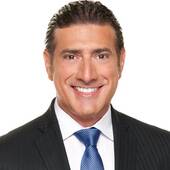When you are buying a home, you will likely need to bring in money at the conclusion of your escrow period (also referred to as the "close-of-escrow"). The information below will help you understand where all of your money is going, which will be useful to help you manage your expectations and budget accordingly. All of the information below carries an implied assumption that the Buyer is obtaining a Mortgage Loan as part of their home purchase (as opposed to paying "all cash" for the home).
1) EARNEST MONEY DEPOSIT: Typically, when you write an offer to purchase a property, you will want to include an Earnest Money Deposit (EMD) with your written offer. The EMD helps the Seller of the property (and the Real Estate Agent representing the Seller) know that you are a serious Buyer. Your EMD is refundable (up until a specific period of your escrow). Assuming you end up buying the home, the EMD is applied towards all other costs associated below.
2) DOWN PAYMENT: The difference between the purchase price and your mortgage loan amount is your Down Payment. While there are still some loan programs do not require a Down Payment, they are few and far between. Most loan programs will require that you put a minimum amount of "skin in the game" on your end to show that you are willing to absorb some additional responsibilities of risk moving forward. For example, if you are buying a home for $400,000 and investing a down payment of $80,000 (20%), your loan amount would be $320,000 (80%).
3) NON-RECURRING CLOSING COSTS (NRCC's): One of the biggest mistakes that Homebuyers (Borrower's) make is co-mingling NRCC's with "Recurring Costs" (explained below). These two types of costs are very different from one another. All NRCC's refer to the one-time costs of creating the new mortgage loan (thus the name "non-recurring"). Examples of NRCC's include (but are not limited to): Appraisal, Processing, Underwriting, Title Insurance, Escrow Fees, etc. When deciding which Mortgage Company (Lender) to work with, you will want to examine the NRCC's along with the interest rate and loan program to determine if you are being offered a competitive loan package.
4) RECURRING COSTS: It is recommended (and preferred) by most Lenders that you set up an IMPOUND ACCOUNT as a budgeting tool to help you insure timely payment of your property taxes and homeowners/hazard insurance. Impound Accounts do not cost any money to create or maintain, and are simply designed to help you avoid becoming delinquent with your local County Tax Assessor and/or Insurance Company. For purposes of understanding, consider an Impound Account to be a "Slush Fund" that the Lender will create from scratch at the close of your escrow period. Any money collected up-front will initially feed the slush fund, and once you start making monthly mortgage payments, your slush fund will grow even larger each time you make a monthly payment. Then, at specified times throughout the year, the Lender will take the money out of your slush fund and pay your property taxes & homeowners/hazard insurance on your behalf (when they are due). When you close escrow, you will want to budget some additional money to create your slush fund. Since this money will later be used to cover your bills, you do not want to mistake it for a Non-Recurring Closing Cost. Remember, it's your money!
5) PER-DIEM INTEREST: The words "per diem" are Latin for "per day." An important distinction to make when you have a mortgage is that you are paying your interest charges "in arrears" (which means "from behind"). For example, when you make your September mortgage payment, that payment is covering the interest for the previous month (August). This is an important disctinction to make, since a September "RENT" payment would cover the entire month of September. In the previous example, if your funded on July 20th, your first mortgage payment would not be due until September 1st. The September 1st payment would cover the entire interest for the month of August. If your loan funded on July 20th, you still have 11 days left in the month of July that would not have been accounted for. This money would be collected at the close-of-escrow as a Pre-Paid Finance Charge (which can also be associated with Per-Diem Interest). This fee too is actually a RECURRING COST of your loan (and should not be interpreted as a NON-RECURRING CLOSING COST). Many Lenders will try to fool you when they create their Good Faith Estimates (GFE's) by only listing 1-2 days of Per-Diem Interest. To an untrained eye, this might make their fees look lower than a competitor's (when in actuality, that particular fee is solely dependent on what day of the month your loan funds).


Comments(4)